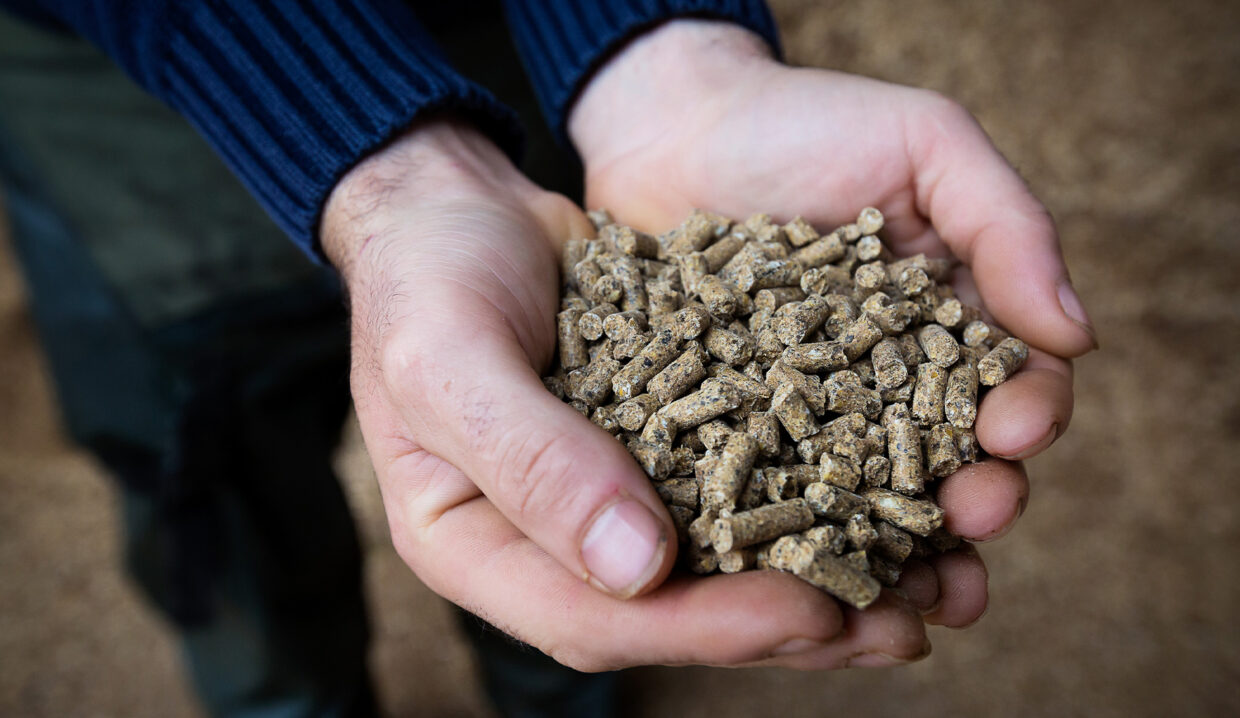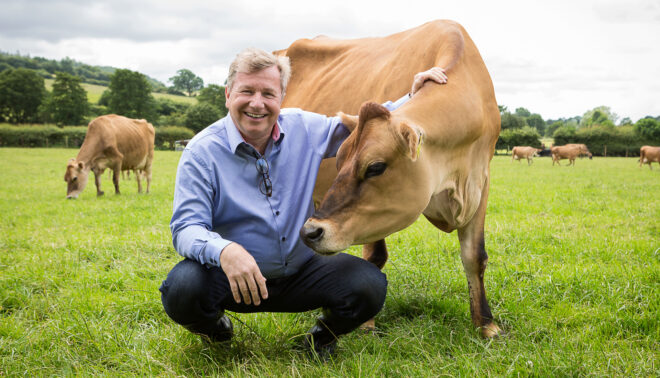Who would have thought 10 or 20 years ago that cow burps would be a regular news topic, but in one form or another the conversation around livestock emissions is prolific – almost more so among the public than the farming community.
But whether beef and dairy farmers are involved with the conversation or not, the pressure to halt climate change by reducing emissions is growing in intensity and the finger is all too often pointed at their practices. The global livestock industry is purportedly responsible for 15% of all greenhouse gas emissions, according to the FAO, and with cow numbers set to rise from 1.5bn now to 2.5bn by 2050, this will only increase.
But constant innovation is paving the way for climate friendly farming with easily adoptable techniques and products coming to the fore. Feed additives that help to reduce enteric (occurring in the intestines) methane emissions or improve efficiencies are one type of solution. These range from yeast cultures to seaweed extracts, essential oils and herb or fruit isolates.

Matthew Smith, vice president at Alltech
Yeast
The oldest product of its kind on the market – registered in 1983 – is a yeast culture targeted at improving productivity in beef and dairy cattle. Based on Saccharomyces cerevisiae strain 1026, the yeast culture known as Yea-Sacc influences performance by reducing pH fluctuations in the rumen, which promotes digestion and nutrient utilisation, increasing feed intakes.
With over 35 years of research behind it, it has proven to sustain higher milk production, maintain cow condition in higher producers, enhance digestion, boost protein supply and increase nitrogen uptake. It can be fed in a number of forms to both dairy and beef animals.
Yea-Sacc is exclusive to Alltech and was validated by the Carbon Trust in 2019, based on Alltech’s increased performance studies with it which resulted in a reduction of cattle methane and nitrogen excretion rates by around 6%. Though Yea-Sacc is inherently about improving production, with the reduced methane emissions a secondary effect, any product should have a positive impact on the cow and not just be about inhibiting methane production, says Matthew Smith, vice president at Alltech. “Producers have to weigh the extra cost of including products in the diet; it has to do something for them.” There must also be no negative impacts on the animals, he adds. “The scientific community are doing a great job at ensuring this.”
There’s an awful lot we can do through incremental improvements. Technology is no silver bullet but it gives us the pathway to taking small steps.
Matthew Smith
Garlic
A natural supplement composed of garlic compounds and citrus derived flavonoids also claims to reduce emitted methane in laboratory experiments by up to 38%, but this can vary dependent on breed, age, farm conditions and rations.
So how does this supplement work? By inhibiting activity of the archaea microbes in the rumen, which are responsible for methane production, it reduces emissions without adversely impacting the bacteria which digest feed.
The supplement, known as Mootral, has been tested in a study by the University of Veterinary Medicine, Hannover, using a rumen simulation technique, and on two UK farms running Holstein-Friesians and Jerseys. The simulation showed almost complete inhibition of methane production, whereas the farm settings showed an average 30% reduction in emissions, a 3-5% increase in yield and no negative impacts on animal health or milk quality. In 2021, Mootral established a carbon credit scheme which aims to supply farmers with the supplement for free through credit purchases.

Mootral pellets can be added to cow diets.
Plant extracts
Another product developed from plant extracts was originally aimed at improving cows’ digestion to increase milk production. “The reduction in the amount of methane produced is a side effect,” says Kurt Schaller, co-founder and director of Agolin. It’s estimated to limit methane emissions by 0.5m³ per animal per day and to provide cows with a 4% better energy yield from their feed.
One gram of the additive in the daily feed ration can reduce a cow’s methane production by 10-20%, based on a number of trial results, and the company has had such uptake in Scandinavia that half of all cows in Norway are now fed Agolin.
The reduction in the amount of methane produced is a side effect.
Kurt Schaller
Validated by the Carbon Trust in 2018, Agolin is certified to reduce methane emissions from ruminants. “Honesty is a value that we hold very dear; we don’t make any claims that can’t be quantified and proven scientifically,” concludes Mr Schaller.
Seaweed
Other products based on seaweed are still very much in the research and development stage, but have shown promising results. Asparagopsis taxiformis is a red seaweed which is claimed to reduce methane emissions from cattle by over 80% when fed in small quantities. A study into the seaweed, published in the Journal of Cleaner Production in June 2020, found that feeding it to cattle had no negative effects on daily feed intake, conversion efficiencies, rumen function and meat quality, and instead improved weight gain.
However, a separate study by Wageningen University has identified that the bromoform in the seaweed is excreted in milk, suggesting it might not be a viable option for use in dairy cattle.

Thomas Hafner, CEO of Mootral, hopes to provide the supplement free to farmers through carbon credits.
So how does the seaweed work? In the normal digestion process, feed is fermented by hydrogen (H2) and carbon dioxide (CO2) combining in the stomach to create methane (CH4), which the cow expels through burping. But when fed the seaweed the H2 is blocked from the C, reducing the production of CH4. The seaweed is being researched and developed into a commercial product by both Symbrosia and Blue Ocean Barns, which are producing at sites in Hawaii. Symbrosia’s trials have demonstrated that a 0.5% inclusion in a cow’s daily diet could result in an 80% reduction in methane. The issue with the seaweed is that harvesting it naturally would have huge negative ecological effects, so it needs to be farmed through aquaculture within an entirely new system.
So will innovation enable farmers to overcome the methane challenge? “I do think science will find ways,” says Mr Smith at Alltech. “There’s an awful lot we can do through incremental improvements. Technology is no silver bullet but it gives us the pathway to taking small steps.”
